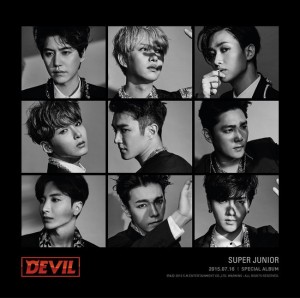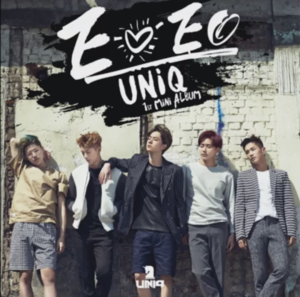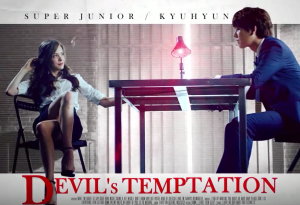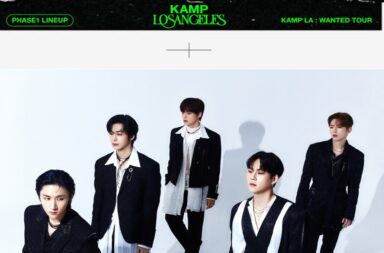 It was recently brought up in the comment section of our “Super Junior’s Devil” MV review that there could be possible sexist connotations to the song’s ‘devil’ metaphor. I mean, there couldn’t be any chance that equating a female to the personification of evil is perpetuating sexism, right?
It was recently brought up in the comment section of our “Super Junior’s Devil” MV review that there could be possible sexist connotations to the song’s ‘devil’ metaphor. I mean, there couldn’t be any chance that equating a female to the personification of evil is perpetuating sexism, right?
The character of the ‘Devil’ is present in a lot of religions as the embodiment of sin. For instance, Christianity depicts the devil as ‘Lucifer,’ an angel that fell from heaven after going against God. This character has been used in many stories to inspire fear among those who come across them. You only have to watch Insidious once to be afraid of falling asleep at night. So when do females come under the ‘devil’ category, and is it sexist?
I want to start by outlining a few concepts that have blended into each other or have been misconstrued. First of all, sexism and misogyny are different. Sexism denotes the systematic prejudice or discrimination against a gender whereas misogyny is the hatred of women. While misogyny is an example of sexism, it is not the same in reverse. Though it is generally accepted that females take the brunt of this sexism, due to the perceptions of a woman’s place in society.
Female sexuality is a big part of the debate over what is acceptable and what isn’t for females. For instance, the group Stellar is known for their provocative concepts, often labeled ‘too sexual’ for the public. A lot of the criticism surrounds the female and how she should present herself; there is a lack mainstream recognition for criticism about the attitudes of those who judge females.
[youtube http://www.youtube.com/watch?v=9XTzz9AYrNU&w=560&h=315]The first song is from rookie group UNIQ, as their song “Listen to Me” links the temptation of a woman to that of a devil. Being a generic dance track, the song unsurprisingly focuses on the sexual aspect of things from the very beginning.
You aimed for my heart, I’m a gambler,
I will have you
But you’re not easy, you’re a sexy devil, alluring me
You turn me on, a dancing magic flow (hey yeah)
You captivate me girl
 While this lyric excerpt is a bit ambiguous in detailing sexism, the song as a whole exudes male entitlement. It starts off detailing that from the first look the man wanted her and confidently says he will have her. While confidence is definitely a positive when approaching someone, there is no respect for what the girl wants. It doesn’t have to be spelled out to you to see that she might not want to be in this situation as UNIQ go on to say ‘don’t try to go away.’ If you have to say this to a girl, then there is clearly something wrong. UNIQ is treading into the territory of the ‘I know you want it’ mentality, expertly depicted by Robin Thicke‘s Blurred Lines.”
While this lyric excerpt is a bit ambiguous in detailing sexism, the song as a whole exudes male entitlement. It starts off detailing that from the first look the man wanted her and confidently says he will have her. While confidence is definitely a positive when approaching someone, there is no respect for what the girl wants. It doesn’t have to be spelled out to you to see that she might not want to be in this situation as UNIQ go on to say ‘don’t try to go away.’ If you have to say this to a girl, then there is clearly something wrong. UNIQ is treading into the territory of the ‘I know you want it’ mentality, expertly depicted by Robin Thicke‘s Blurred Lines.”
Though the sexist tones are more ambiguous compared to “Blurred Lines,” especially when they start to talk about wanting to move to the music together, hints of male entitlement can still be seen in this song. Consent is the key here, but UNIQ are not interested in the word ‘no’ at all; they have no regard for the girl as a human. They find her sexy; therefore, she is theirs for the taking. In UNIQ’s perspective, we start to see the normalization of rape culture, where consent is completely disregarded.
So how does the devil metaphor tie into this?
In the song, the girl is called a sexy devil when she seemingly ‘tempts’ a man and then eludes his grasp. This negatively portrays female sexuality as it links to the idea that a female can only be sexual for a man. This couldn’t be further from the truth as females are first and foremost sexy for themselves, as a form of confidence (Example: Spica‘s “I Did It“). Basically, at no point should a female or even a male be justifiably called a ‘devil’ for denying someone’s advances.
[youtube http://www.youtube.com/watch?v=gOwERHxXcTs&w=560&h=315]“Devil” is a great example of Super Junior killing it as one of the older K-pop groups by pulling together a more mature sound. It had me thinking that maybe I had been missing something by not paying much attention to Super Junior. However, their use of ‘devil’ may raise a few eyebrows.
You’re cold and hot, devil
Like a midsummer rain shower
After drenching my hot body,
You burn up my throat again
 There is no denying that the chorus is incredibly sexual, making reference to Super Junior being denied the sexual relationship they want. This heavily contrasts the ‘perfect’ gentlemen theme Super Junior has in the verses, especially when they promise to wipe away tears when the girl is sad. This is the first hint at the ‘nice guy’ mentality in this song. While this mentality seemingly promotes good behavior, it has its roots in entitlement; the idea that I am being nice to you so you should accept my advances. This is female objectification because it completely ignores the female opinion.
There is no denying that the chorus is incredibly sexual, making reference to Super Junior being denied the sexual relationship they want. This heavily contrasts the ‘perfect’ gentlemen theme Super Junior has in the verses, especially when they promise to wipe away tears when the girl is sad. This is the first hint at the ‘nice guy’ mentality in this song. While this mentality seemingly promotes good behavior, it has its roots in entitlement; the idea that I am being nice to you so you should accept my advances. This is female objectification because it completely ignores the female opinion.
There is no mention throughout the song of her opinion of their relationship, only that she is hot and cold on the topic. While there is a chance that she is toying with them, there also is the possibility of her not wanting a relationship or being indecisive, a common trait. In fact, the girl doesn’t really seem interested as she avoids the topic of a relationship despite them ‘begging’ for it. So does this make her a ‘devil’? No. Just because she refutes or is indecisive about their ‘romantic’ advances does not mean she is a devil; this is the vilification of a female for saying no.
One example of a song where the phrase is used appropriately is one of Beast’s new releases, “Gotta Go to Work.” It once again makes reference to a female as a temptress; however, the female in question is in a happy relationship with someone.
That sexy face you’re making is so bad
Woo don’t tempt me, you’re a pretty devil
I’m sorry baby Gotta go to work Gotta go to work
I gotta go to work, for you
This makes a load of difference to the devil metaphor because it is paired with consent on both sides of the relationship. ‘Devil’ is actually turned into an endearment rather than an insult. I mean, who doesn’t have one friend that they jovially insult, as long as the friend knows you aren’t serious?
[youtube http://www.youtube.com/watch?v=mjP5mx30g8c&w=560&h=315] It is clear that it is actually the conditions one is in that determine whether the use of ‘devil’ is sexist or not. Those specifically that refer to a female as a devil in a sexual sense tend to be at risk of being sexist. It all comes back to consent — when no means no and yes means yes. Attitudes that deny a female a choice in a sexual situation promote the idea that a female is an object, rather than a human. While none of the songs make it up to the “Hell Fire” level of objectification, there are still hints of entitlement.
It is clear that it is actually the conditions one is in that determine whether the use of ‘devil’ is sexist or not. Those specifically that refer to a female as a devil in a sexual sense tend to be at risk of being sexist. It all comes back to consent — when no means no and yes means yes. Attitudes that deny a female a choice in a sexual situation promote the idea that a female is an object, rather than a human. While none of the songs make it up to the “Hell Fire” level of objectification, there are still hints of entitlement.
A lot of the ambiguity on whether a song is sexist or not comes from marginalization of the female point of view in these songs; it makes it hard to make that judgment. However, the lack of a female point of view does allude to the fact that it is not valued in these situations, tying it into the objectification of women.
In the Western pop music market, songs with messages like these are produced rapidly. Most become desensitized to this type of sexism, so much so that it seems normal. In fact, I myself battled with giving judgment to some of these songs because, as an Australian, this is normal to me. However, I will make this very clear: A woman does not deserve to be called a devil at all simply for refusing a person’s advances.
I really encourage the debate of this topic whether you identify as a feminist, don’t, or detest it. Sexism is an important issue in today’s society, and a constructive debate is important. So I put it to you — do you think these are examples of sexism? Where do you draw the line?
(YouTube [1][2][3], Images via SM Entertainment, Cube Entertainment, Yuehua Entertainment, The Guardian)


